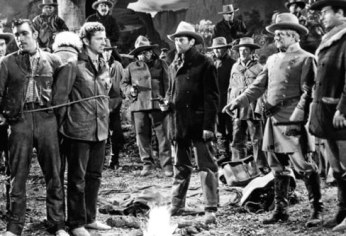One of many resources I consult on issues is The Ethics Resource Center located in Arlington, Virginia.
“ERC,” its website writes, “began in 1922 as American Viewpoint, which provided education to adult immigrants about citizenship and values.

“In the 1960’s, Ivan Hill, an entrepreneur from Chicago who was passionate about ethics and patriotism became interested in supporting the work of American Viewpoint. As the financier and ‘unpaid, volunteer’ president of American Viewpoint, Mr. Hill took the office to the University of North Carolina, largely because Luther Hodges, who was an advocate for business ethics, was the governor of North Carolina at that time. (Hodges went on to become U.S. Secretary of Commerce under President Kennedy.)”
In April, 1980, Hill wrote a little booklet that I came across early in my adventures in ethics entitled, Common Sense and Everyday Ethics.
“Why do we tolerate all these destructive acts?” Hill asks. “First, many of us are personally involved and are profiting by dishonesty and corruption. Second, many of us are weak or apathetic. We’re afraid to take courageous, positive steps to stop these raging rip-offs. Third, too many of us have no values other than money…. Fourth, a large number of us seem content in the belief that as long as we observe reasonable ethical standards, we do not need to feel responsible for the conduct of others.”
I was watching the classic 1943 Western, The Ox-bow Incident the other night.
Directed by William Wellman, the film follows two drifters, played by Henry Fonda and Harry Morgan, as they stop to water their horses and themselves in a local town. While in the saloon, the two men learn that an area rancher has not only been the victim of cattle rustling but murder. With the sheriff out of town on business, a civil war veteran takes charge and forms a posse to go after the killer(s). However, a local judge warns them to guard against taking the law into their own hands and bring whomever they find in for the sheriff.
Later that night, in the Ox-bow canyon, the posse comes across three men who, by circumstantial evidence, appear to be guilty of the murder of rancher Larry Kincaid. Fonda’s character, however, is not convinced. When he tries to make the case for bringing the men in and letting the sheriff decide, the leader of the group reminds him that, as an outsider, “This is only slightly any of your business!”
Fonda’s character responds, “Hanging’s any man’s business that’s around.”
Watching the scene play out, I realized, it’s the same with conduct. Ethics is everyone’s business that’s around. Too many times, we tell ourselves it’s not my department, not my business. Everyone thinks it can’t happen where they work… until it does. The reality is that it’s up to all of us to speak out whenever we see unethical behavior.
Irish statesman Edmund Burke reminds us that “All that is necessary for evil to triumph is for good people to do nothing.”
Like it or not, sometimes, you may be called on to be the Henry Fonda of the organization.
Comments










